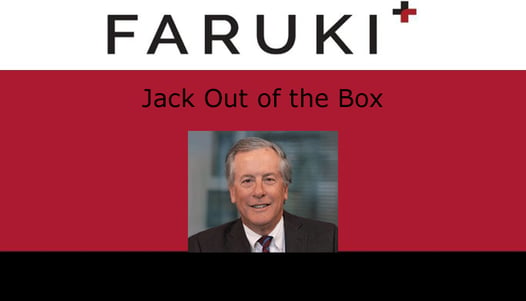- February 6, 2024
- Jack Greiner
- Jack Out of the Box
 A California federal court recently dealt a blow to YELP's efforts to stop Ken Paxton, the Attorney General for the state of Texas, from continuing to sue YELP for its alleged deceptive trade practices. Judge Trina Thompson, a Biden appointee, determined that the federal court should stay out of the Texas proceeding.
A California federal court recently dealt a blow to YELP's efforts to stop Ken Paxton, the Attorney General for the state of Texas, from continuing to sue YELP for its alleged deceptive trade practices. Judge Trina Thompson, a Biden appointee, determined that the federal court should stay out of the Texas proceeding.
The case arose from YELP's efforts to clarify the role of "Crisis Pregnancy Centers." According to YELP, CPCs are "businesses that offer pregnancy-related counseling but not abortion services or referrals to abortion providers." Starting in 2018, Yelp learned that some CPCs were attempting to mislead consumers about their services. Yelp investigated the issue and found that a large percentage of CPC websites provided what the company considered to be false or misleading information. Some studies found that CPCs operated in "bad faith" by employing strategies to draw in women seeking abortion services, even though CPCs do not provide abortions or referrals to abortion providers.
In August 2022, Yelp published a notice that informed consumers that CPCs "typically provide limited medical services and may not have licensed medical professionals onsite." According to Yelp, this was a true statement based on evidence of the types of services CPCs provide and the qualifications of CPC staff. Yelp also noted that some pro-life medical organizations have described CPCs as offering "limited medical services" and that some CPC websites post disclaimers stating they are a "limited medical clinic" or "limited medical facility." This notice apparently got under the skin of at least 24 Attorneys General, including Paxton, who sent a letter to YELP claiming that Yelp's First Notice was misleading and demanding that Yelp remove it.
Although Yelp asserted the First Notice was not misleading, Yelp updated its notice to state that "Crisis Pregnancy Centers do not offer abortions or referrals to abortion providers." On February 14, 2023, Paxton's office issued a press release that stated the Second Notice provided an "accurate description." The lead author of the February 7 letter, the Attorney General of Kentucky, publicly praised Yelp's response and stated, "I appreciate Yelp's timely response in addressing our concerns." This Kumbaya moment was short lived. On September 22, 2023, Paxton sent a letter to Yelp, notifying the company that his office intended to sue because it concluded Yelp had violated the Texas Deceptive Trade Practices Act. The letter called out Yelp's First Notice, that stated CPCs "typically provide limited medical services and may not have licensed medical professionals onsite." The letter stated that Paxton was authorized to file suit within seven days and that he could seek "civil penalties of up to $10,000.00 per violation," as well as attorneys' fees and other penalties. The letter did not limit its reach to "violations" in Texas.
In response, YELP filed suit against Paxton, in his official capacity as Attorney General of the State of Texas, on September 27, 2023. The next day—and within seven days of Texas's letter to Yelp—Paxton filed a petition against Yelp in Texas state court, claiming the First Notice was misleading. The petition sought to permanently enjoin Yelp from "posting any [ ] false and/or misleading disclaimers or representations" about CPCs. The injunction Paxton sought was not limited to Yelp's conduct in Texas. On October 2, 2023, Yelp moved for a preliminary injunction to enjoin Paxton from taking any further action to penalize Yelp's publication of its CPC notices. On February 2, the federal court denied YELP's motion and dismissed the case.
In its ruling, the court relied in the "Younger" abstention doctrine. That doctrine holds that federal courts should abstain from intervening in ongoing state proceedings. Here, YELP conceded that it was asking the federal court to do just that. But YELP argued that two exceptions to the Younger doctrine applied. First, YELP argued that abstention is inappropriate when the "state proceeding is motivated by a desire to harass or is conducted in bad faith." YELP contended there was bad faith in two respects – first, Paxton had no reasonable expectation of prevailing on his state action; and second, Paxton brought the Texas action to retaliate against YELP for exercising its constitutional rights.
The federal court concluded that on the first point, a weak case doesn't equal bad faith. And to decide on the bad faith issue, the federal court would need to investigate the merits of the Texas suit – precisely what Younger abstention seeks to avoid. On the second point, while the court conceded that YELP made a compelling case for retaliation, it failed to make its case. The Texas AG had investigated the case to a degree that satisfied its duties.
YELP can appeal this case to the Ninth Circuit, but because it did not obtain the injunction, it will likely have to defend itself on the merits in the Texas proceeding. I suspect the terms "government overreach" and "prior restraint" will figure prominently there.
